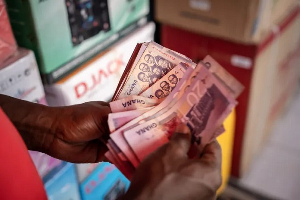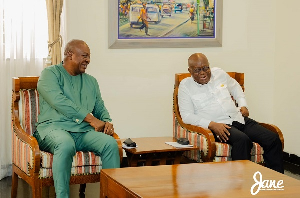Married together, the words “financial” and “technology” begets Fintech. Fintech offers a digital and thus convenient means of accessing one’s finances. A currency on the other hand according to the Oxford Advanced Learner’s Dictionary is a system of money that a country uses. Today, this currency could either be electronic or physical.
Due to the internet, technological advancements, and the innate human desire for convenience Fintech today has drastically evolved over the years albeit dating as far back as the late 19th century when money transfers were done using Telegraphs and Morse codes.
For a sovereign state like the Republic of Ghana, the Ghanaian Cedi is the only known, and legally accepted tender for business-related transactions regardless of its form. i.e. paper currency or electronic currency (also e-money). E-currency is becoming an increasingly popular alternative to paper currency due to the convenience and security it offers.
I have encountered an interesting article dated May 31, 2024, published by Citi Newsroom titled “Is Ghana Becoming a Dual Currency State? The Rise of Yellow Currency!” by Mr. Bismark Brown. The article discusses the concept of a “Yellow Currency” and its potential impact on the Ghanaian economy.
Is Ghana becoming a dual-currency state?
For a state to be a dual-currency economy, a locally issued fiat currency, and a foreign currency must be in circulation. A dual-currency economy better put, a multi-currency economy in most cases rises spontaneously as the people adopt other foreign currencies in addition to their locally issued fiat money for business transactions.
This is evident in the real estate, construction and hospitality industries of Ghana where transactions are often closed particularly in the United States Dollar and other foreign currencies like the Great British Pound.
This practice can be attributed to market desires resulting from the rationality of the people and the increasing volatility of the cedi. Thus, Ghana for most of her lifetime has been a multi-currency economy, and this does not have to be backed by government edict.
The “Yellow currency”, popularly known as MTN Mobile Money (MTN MoMo) is not a foreign currency but a mobile-based Fintech service that is denominated in the Ghanaian fiat currency and poses no threat as suggested in that publication.
It is just an electronic form of the same currency. The MTN mobile money can in no case surpass the Ghanaian cedi in relevance!
Just like other mobile money services, it can only exist as a complement to paper currency.
I find this characterization to be misleading and unfair to Ghana’s leading Telco.
Has MTN monopolized the sale of MTN data bundles?
While it is true that data bundles on the MTN network can only be purchased exclusively with MTN MoMo, it's worth noting that other telecommunication companies, such as Telecel and possibly AirtelTigo, have similar limitations.
Additionally, it is important to highlight that airtime can still be purchased across different networks, allowing for some level of cross-network flexibility.
It is crucial to take an objective approach in evaluating any limitations on data purchases. Instead of attributing this to monopolistic behavior, it may be a result of infrastructural constraints.
To ensure fair competition and consumer choice, other moribund telcos must invest in enhancing their infrastructure.
Therefore, instead of encouraging the unwarranted stifling of MTN’s dominance by regulators, I believe that promoting investment in infrastructure and products by all telecom companies would be more constructive. This would contribute to a level playing field and encourage a cashless economy, empowering consumers' choices while supporting the central bank's efforts to improve financial oversight and inclusivity.
Opinions of Sunday, 16 June 2024
Columnist: Edmund Terkpernor



















